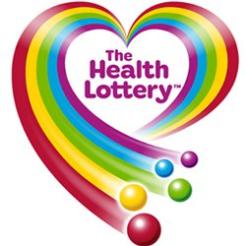The High Court has dismissed a claim by the National Lottery operator against the Gambling Commission, finding this morning that the Commission was correct in licensing the Health Lottery.
The Health Lottery has declared the decision a “victory” for the society lotteries it raises funds for and a “triumph for the society lottery sector as a whole”, but Camelot has already announced its intention to lodge papers with the Court of Appeal.
Lord Justice Stanley Burnton and Justice Kenneth Parker agreed that the Camelot claim against the Gambling Commission’s decision was out of time and that, in any case, its case had no “real prospect of success”.
Camelot had taken the Gambling Commission to court over its licensing of the Health Lottery, which started selling tickets in October last year. The National Lottery operator argued that the Health Lottery in effect acted as a national lottery, of which legislation dictates there is only supposed to be one in the UK. But the Gambling Commission countered that the Health Lottery structure, which involves nationwide tickets sales but is the result of 51 linked society lotteries, is permitted by law, and that any confusion over such linked lotteries should be cleared up by the government, not the courts.
In handing down his decision, Lord Justice Burnton said: “I agree with the Commission that the question whether multiple society lotteries should be permitted is a political question, to be determined by the government or parliament. Multiple society lotteries are not prohibited by the [Gambling] Act [2005].”
Following the release of the judgement this morning, Camelot released a statement in which it said it was disappointed with what it called “a legally-flawed and unfair decision by the court”.
Camelot calls for lottery 'loophole' closure
Dianne Thompson, Camelot chief executive, said government must now act “immediately” to clarify the law so as to prevent other, similar multi-society lotteries being set up and “effectively cannibalise National Lottery sales and return to good causes”. Earlier this year Camelot claimed that the National Lottery was losing £1m a week due to the Health Lottery, but a report released during the course of the High Court action suggested that the Health Lottery was taking at most £300,000 from the National Lottery’s weekly sales.
“It is now imperative that the government acts to close this loophole and to ensure that the law mirrors the intention and will of parliament that there should be only one National Lottery,” she said.
Health Lottery: ‘Complete vindication’
The Health Lottery, however, says that the decision has been a boon for the society lottery sector, which it says raised £168m last year for good causes. The Health Lottery has raised around £23m, and announced at launch aspirations to return £50m a year to health causes. The Health Lottery has been under fire from Camelot, and some commentators in the sector, since launching last October.
Richard Desmond, chairman of Northern and Shell which owns the Health Lottery said: “The High Court’s judgement today is a complete vindication of all the hard work that has gone into launching the Health Lottery.
“If Camelot had succeeded in this case they would have shut down lifeline funding to hundreds of health projects and charities, and the charity sector would have lost out badly. I am thrilled that the Court has seen through their tactics and we can get back to work.”
'Limited impact' on society lottery sector
The Lotteries Council chairman Clive Mollett said that it is unlikely that the ruling will unleash a flood of copycat multi-society lotteries.
“The fact of the matter is the Health Lottery has been lawfully established, it is operating in a legal manner, but quite clearly the proceeds that have been derived so far are far short of expectations, so I don’t think its likely to have any impact on what’s happening in the society lottery arena - other than the fact that obviously it’s created a great deal of negative feedback from Camelot which is trying to defend their position,” he told civilsociety.co.uk.
“Camelot has no interest whatever in society lotteries, and it has always been quite hostile to what we’re trying to do from a fundraising perspective.”
ASA ruling
The Health Lottery was subject to another adjudication today, with the Advertising Standards Authority ruling that its television advert which featured the text that players could win 'up to £1/4m' fell foul of advertising rules. Two individuals complained that this was not the typical jackpot.
The Health Lottery had argued that it was possible to win £250,000 and that this had been paid out once, two months prior to the ad airing. It said that the advertisement was for the lottery generally and not a particular draw. The ASA, however, judged that the ad was misleading and told the Health Lottery not to run ads implying larger than usual jackpots could be won.









